
- Iran/Iraq war in which both CIA-installed dictators (Hussein and Khomeini) were able to kill off each other's insurgents and maintain stability of their dictatorial regimes under the watchful eye of U.S. AWAC squadrons. The Bush regime decided to kill two birds with one stone - Iraq was instructed to smack up Kuwait and in turn the U.S. would smack up the Iraqi insurgents inducted into the Republican Guard. For 130 consecutive months after the Gulf War, U.S. and/or British bombs continued to fall monthly on the heads of Iraqi insurgents to the benefit of Saddam Hussein's regime..... And that's what happened -
http://echkelon.blogspot.com/2009/04/other-four-larijani-brothers.html


The CIA had long maintained an association with Iran's Shi'a holy leader, Ayatollah Khomeini...
http://www.aref-adib.com/archives/000262.html
....http://aangirfan.blogspot.com/2008/10/was-khomeini-agent-of-us-and-uk.html.
Although it does not discuss the fate of the SS Poet and its involvement in the 1980 October Surprise engineered by the Reagan-Bush-Casey campaign and CIA elements to force President Jimmy Carter from office over the U.S. hostages in Iran, Joseph Trento's book, "Prelude to Terror: The Rogue CIA and the Legacy of America's Private Intelligence Network," published in 2005, does provide more details of the operation that engineered the secret arms shipments to Iran by George H. W. Bush, William Casey, and their loyalists inside the CIA and Carter's National Security Council....
http://echkelon.blogspot.com/2009/04/other-four-larijani-brothers.html
According to Trento, the private CIA weapons smuggling operation, which had been centered at a number of Washington locations, including CIA officer Edwin Wilson's Consultants International on K Street in Washington and 7777 Leesburg Pike in Falls Church, Virginia, in addition to the address in Rosslyn, Virginia reported by WMR, 1911 North Fort Myer Drive, was factionalized between Arabists like Wilson, and pro-Israelis like his erstwhile colleagues Ted Shackley and Thomas Clines.
According to Trento: "Since the CIA's Middle and Near East Divisions were extraordinarily pro-Arab, James Jesus Angleton had run the Israeli account totally out of the Counterintelligence Division." After Angleton was fired from the CIA by director William Colby, the pro-Israel mantle was passed to Shackley and then to Clines. There were some reports that Wilson was aligned with the more pro-Arab factions of the CIA. However, according to Trento, Wilson shared many secrets about the Arab nations, particularly Libya, with the Mossad. The Israelis also received a cut on aircraft sales Wilson made to Libya. The planes, which flew Libyan leaders, including Muammar Qaddafi, around the Middle East, came complete with Israeli bugging devices. Israeli agents were also present at explosives training facilities in Libya. Wilson apparently knew that if he ever tried to conduct any operations in the Arab Middle East without the knowledge of Mossad, the Israeli intelligence agency would have him killed immediately.
Trento also indicates that working with Wilson, Shackley, and Clines on the secret CIA weapons pipelines to Libya and, later, the Afghan mujahidin and Iran, was Admiral Stanfield Turner's choice to replace his deputy CIA director Hank Knoche -- Frank Carlucci. Carlucci would later become the chairman of The Carlyle Group. Carlucci was also close to Gerald Ford's Defense Secretary Donald Rumsfeld; the head of the Defense Security Assistance Administration (DSAA) Erich von Marbod; and the former Chief of the U.S. Military Aid Office in Iran, Major General Richard Secord. Others who would become part of the private CIA weapons smuggling network were Bay of Pigs veteran Rafael "Chi Chi" Quintero and Glenn "Robby" Robinette, the CIA technical security expert who would later help install Oliver North's expensive home security system during the Iran-Contra scandal.
According to Trento, Israel maintained two lines of communications to Saudi Arabia. One was through Kamal Adham, the head of the Bank of Credit and Commerce International (BCCI) and the former chief of Saudi intelligence, and the second was via Angleton. Adham ran a secret war against Islamic fundamentalists in the Middle East in cooperation with Israel. One of the benefactors of the Adham-Israeli alliance was the intensely secular President of Iraq, Saddam Hussein.
Wilson's cooperation with Mossad extended to the Israelis receiving a cut on plane sales to Libya. The Libyan planes that flew Libyan officials,including Qaddafi, around the Middle East, came complete with Mossad bugging devices. Israeli agents were also present at Libyan explosive training facilities courtesy of Wilson's good offices in Tripoli.
Wilson continued to establish his network of secret CIA weapons smuggling entities. One was set up under the name of the former CIA station chief in Tripoli, Brigadier General J. J. Cappucci, someone who had more than a passing interest in Muammar Qaddafi's overthrow of Libyan King Idris I in 1969. Eventually, Wilson, not aware that he was being double-crossed, saw Clines and two associates buy out Wilson's stake in Cappucci and Associates. The money used to purchase the stake came from a CIA proprietary airline called Air Panama. One of its frequent fliers was a Panamanian Defense Force Colonel named Manuel Noriega.
Cappucci and Associates had hired Don Lowers, a former Army counterintelligence officer later jailed in Ohio on securities fraud, and Neil Livingstone, who was arrested in Libya in 1976 and confessed to being a "Zionist spy" and was subsequently released. Livingstone, who was close to the Mossad, had a good friend in Panama named Michael "Mike" Harari, a longtime Mossad agent, Israel's top intelligence officer in Latin America, and a close confidante of Noriega.
Cappucci was a mere figurehead for Cappucci and Associates. His only real worth was that when Idris was overthrown, Cappucci was able to smuggle out to Egypt Idris' top financial adviser, Egyptian General Kamal Hassan Ali. General Ali would soon end up as President Anwar Sadat's Defense Minister.
The 1978 Camp David peace accords between Egypt and Israel provided a potential windfall for the CIA's private weapons smuggling network. President Carter promised Egypt $4 billion in arms for it to achieve weapons parity with Israel. Wilson planned on having his Houston-based Around the World Shipping Company act as the main supplier of weapons to Egypt. To launder the proceeds from the weapons sales, Wilson established a network of entities, including Arcadia Limited in Geneva, International Research and Trade (IRT) in Bermuda, and an IRT branch in the United States to handle the money transfers and contracts.
However, Shackley, Clines, and another Wilson colleague, Douglas Schlachter, had other ideas. In addition to taking over Cappucci and Associates, Clines and Shackley knew that Schlachter has his own good connections in Libya and could easily replace Wilson. A new company, Delex International was set up by the three to handle the weapons business with Egypt.
Wilson also maintained good relations with Iran's SAVAK secret service, having provided the names and covert identities of several Iranian students training in Libya for operations against the Shah. The SAVAK hunted down and assassinated a number of the people Wilson turned over to them.
Israel was never happy with Carter's Middle East peace initiative so it began a program to discredit the President. The Mossad, using an Iranian-Israeli intelligence cut-out, Albert Hakim, devised a plan to destroy Carter's reputation through his brother Billy Carter. Clines and Schlachter worked out an operation to have Billy put on Libya's payroll as a public relations ambassador for the Tripoli regime. Wilson later interceded with the Libyans to pay Billy. The Libyans paid Billy $2 million but he only reported to the Internal Revenue Service a payment of $200,000. National Security Agency (NSA) director Bobby Ray Inman, who hoped to replace Stansfield Turner as CIA director in a second Carter term, approached Attorney General Benjamin Civilletti with the intelligence that Billy had accepted $ 2 million from Libya. Civilletti asked Inman for proof. The NSA director said Civilletti did not have the need to know for NSA's sources and methods.
Perhaps Billy knew something was up with the leaks to the press about his business deals with Libya. Hosting a Libyan delegation at the Atlanta Hilton, Billy said, "The only thing I can say is there is a hell of a lot more Arabians than there is Jews." The Israeli plan worked, regardless of Billy's statements. Jimmy Carter was damaged by his brother's ties with Libya and Stansfield Turner was under pressure from his pro-Israeli flank inside and outside the CIA.
Anticipating the arms business with Egypt, Shackley and Clines established under Clines, the Egyptian American Transport and Services Company (EATSCO) to cut out Wilson's Around the World Shipping from the Camp David weapons shipment business. However, there remains some question about how much Wilson knew about EATSCO. It was, according to The Washington Post, located among Wilson's other firms at 1911 North Fort Myer Drive in Rosslyn. But it eventually shifted its operations to 7777 Leesburg Pike in Falls Church, Virginia where it sub-let office space from Republican direct mailing computer expert Richard Viguerie. Many of Wilson's old colleagues moved to the new location, including some of the principals of Cappucci and Associates.
Trento also writes: "Through Israeli intelligence sources in Libya, the CIA had the memo Ed Wilson had written to Qaddafi's military security on May 12, 1981, detailing his activities in Egypt through EATSCO."
Viguerie also knew Wilson through their mutual friend, Robert K Gray, President Dwight Eisenhower's Secretary of the Cabinet. Viguerie was a member of the influential Georgetown Club, established by South Korean businessman Tongsun Park of Koreagate influence-peddling infamy. Park set up the club with the assistance of Gray. Gray was also on the board of Wilson's Consultants International. Gray was close to Anna Chennault, the widow of CIA proprietary airline founder General Claire Chennault. Another Ed Wilson associate was Representative Charlie Wilson (D-TX), no relation to Ed Wilson, who would go on to his own peculiar stardom in the arming of the Afghan mujahidin.
All the while, Shackley, after he left the CIA upon being fired by Turner, was on Clines' payroll as a consultant to Wilson's companies, Systems Services International (SSI), API Distributors, and IRT.
The plan to set up Wilson, in the end, was cooked up by Shackley and Clines, with the Israelis not innocent bystanders. It was leaked to the press that Wilson was a CIA agent and that caused problems for his business interests in Libya, as well as his non-official cover (NOC) status. It was also floated by Shackley that Wilson was involved in the 1976 assassination in Washington of former Salvador Allende Foreign Minister Orlando Letelier.
But Wilson continued to act in his NOC status in Libya. In what was one of the first counter-proliferation operations targeting Libya's acquisition of nuclear material from the French South Pacific nuclear testing program, Wilson provided Langley with details of what Libya was procuring from its supply network, a network that would one day be known as the "A Q Khan" network, the nuclear material smuggling operation run by Pakistan's top nuclear scientist.
With Cappucci and Associates firmly under the control of Shackley and Clines, the firm managed to get the contract to train President Sadat's personal bodyguard. It would be a fateful decision. The Israeli circumvention of the CIA's private network would soon put the Middle East in flames. The CIA had long maintained an association with Iran's Shi'a holy leader, Ayatollah Khomeini. In 1964, after Khomeini was arrested by SAVAK, the CIA arranged for Khomeini to stay at a safe house in the Iraqi Shi'a holy city of Najaf. The CIA's man in Iraq, Saddam Hussein, permitted the CIA to protect Khomeini with a number of CIA Iranian-born security agents. Eventually, Khomeini out stayed his welcome in Iraq and he moved, along with some CIA agents on his personal staff, to a villa outside of Paris.
Khomeini would be grateful to the CIA later. When the CIA conspired to eject Carter from office, Iran would, along with Israel, be the perfect allies. Israel maintained close relations with the Shah's government. Iran even helped bankroll Israel's nuclear weapons program. But after the fall of the Shah, Israel needed to make an opening to the new Iranian government. Using Shackley's good offices with the new Iranian regime, Israel restored its old ties to Iran.
Meanwhile, as the 1980 presidential election drew to a close, the Reagan-Bush-Casey team were worried that Carter may pull off his own October Surprise and effect a pre-election hostage release of the U.S. embassy personnel being held in Tehran. A CIA analyst on loan to the Carter National Security Council (NSC), Robert Gates, is reported by former Associate CIA director Robert Crowley, in Trento's book, to have provided the contents of Carter's debate briefing book to the Casey prior to the all-important and sole October 28, 1980 presidential debate between Carter and Reagan. Crowley is quoted: "There is no question Gates had access to it [the briefing book]. There is no question Casey got it."
WMR has previously reported on the details of the Reagan-Bush-Casey team chartering the SS Poet to deliver weapons to Iran to ensure that Carter would not see a hostage release before the election. Iran was hungry for weapons after September 22, 1980, when Iraqi MiGs stuck Tehran in an air attack, starting the bloody Iran-Iraq War.
Trento's book comes closest to revealing the pre-election supply of arms to Iran when it states: "Perhaps the final seal on President Carter's fate was provided by the Thatcher government in England. British Customs investigator J. Barrie Riley, who arrested British gunrunner Ian Smalley, said that the British Ministry of Defense was involved with fulfilling the Republican pledge of arms to Iran in exchange for delaying the hostages' release until after the elections. What makes Smalley's account believable is the fact that he provided Riley his notes on the shipments years before they became a public issue."
Carter later said in a Village Voice article, "We tried to clean up the CIA . . . We knew that some of the people were loyal to Bush and not particularly loyal to me and Stan Turner . . . I never did have an official report come to me and say that Bill Casey was meeting with Iranian officials in Paris or anything specific, just allegations and rumors . . . I didn't believe them."
Trento provides even more confirmation about a deal between the Reagan-Bush campaign and Iran pre-election. Trento quotes from the book of Iran's former President Abolhassan Bani-sadr, "My Turn to Speak: The Revolution & Secret Deals with the U.S." Bani-sadr wrote: "I have proof of contacts between Khomeini and the supporters of Ronald Reagan as early as the spring of 1980 . . . the sole purpose of which was to handicap Carter's re-election bid by preventing the hostages' release before the American elections in November 1980. Rafsanjani [Akbat Hashemi Rafsanjani, member of the Iran Revolutionary Council], Beheshti [Seyyed Mohamed Hosseini Beheshti, secretary general of the Islamic Republic Party killed in 1981 by a terrorist bombing carried out by the Mojahedin e Khalq (MEK) terrorist group], and Ahmed Khomeini [the Ayatollah's son] played key roles in proposing this agreement to the Reagan team."
This revelation begs an important question. Given the CIA's early support for Khomeini, was the Iran hostage crisis cooked up by Carter's CIA enemies and Khomeini's government, with the support of Israel, to oust Carter from the White House?
Trento also reveals that at NSA, Inman had all the transactions between EATSCO that proved that Wilson remained on the CIA's payroll. Wilson, indicted in April 1980, as the Reagan team was meeting with the Ayatollah's representatives, was threatening to reveal all about the Shackley, von Marbod, Secord, and Clines operation. Something would have to be done about Wilson and fast. NSA also had intercepts showing that EATSCO's chief,. Hussein Salem, had gone directly from Egyptian intelligence to the EATSCO/TERSAM operation. TERSAM, a Panamanian company, was designated in 1987 as the sole shipping agent for Egypt in a sweetheart deal.
After Reagan's election, Casey took over as CIA director. One of Casey's first acts was to make Israel's influence within Langley official. Casey named Max Hugel, described by Trento as a "short, smart, foul-mouthed Brooklyn-born Jew," a racetrack owner who dressed like one, his director of operation (DO). CIA counter-intelligence had Hugel under investigation for having as friends a number of Japanese businessmen who had been prisoners of the Soviets during World War II and were believed to have been turned as Soviet agents. One of the Japanese business friends of Hugel had been caught selling the Soviets U.S. submarine technology. Soon, Shackley was being bypassed by the Mossad, which preferred to get its intelligence directly from Hugel. Hugel's relationship with the Israelis became a huge problem for Langley. NSA director William Odom had evidence of Hugel's unauthorized contacts with Israelis about Osirak. The Odom information was leaked to Senate Intelligence Committee member Joe Biden who was outraged that Casey would have someone like Hugel in such a sensitive position. Sixteen audio tapes of Hugel threatening two mysterious brothers -- Thomas and Samuel McNeil -- were leaked to the Washington Post's Bob Woodward. A third McNeil brother, Dennis McNeil, reportedly died under mysterious circumstances at the same time. Hugel's predecessor as DO said he did not know how the tapes got to the Post but that "it might have been one of the Agency's better covert operations." Hugel was toast. He was replaced as DO by John H. Stein. Hugel later became involved in business deals with Israel.
Hugel helped hammer out a deal whereby the CIA would help Israel destroy the Iraqi nuclear reactor at Osirak. Casey sold the store to the Israelis, delivering to Israeli Major General Yitzhak "Haka" Hoffi, highly-classified SR-71 reconnaissance imagery of Osirak. WMR has previously reported how Casey also hammered out deals whereby Israel would receive highly-classified U.S. signals intelligence (SIGINT) and space-based imagery intelligence (IMINT) technology from the United States.
EATSCO was, meanwhile, shipping arms to the Afghan mujahidin through the cover of its Egyptian business deals. One of the expediters was R. G. Hobelman Shipping Company of Baltimore. With enough baksheesh to go around in Egypt, old Soviet-supplied Egyptian military equipment was being sent to the Afghan mujahidin via Saudi Arabia and Iraq and being replaced with new American military hardware. All of this ultimately implicated, according to Trento, Egyptian Vice President Hosni Mubarak, whose cronies were very involved in the weapons smuggling operation. Mubarak and other top Sadat ministers were CIA assets. The man who managed the CIA's assets in Cairo was William Buckley.
Sadat was growing suspicious of the weapons deals between his vice president and top ministers and the CIA front companies. Sadat may also have had knowledge of the Poet deal between the Reagan campaign and the Iranians. Sadat's people had conducted an audit of the EATSCO/TERSAM contracts and found serious problems with overcharging and unaccounted for money. Sadat's investigation became worrying to Mubarak, Casey, and the entire covert aid network to the Afghans.
On October 6, 1981, while at a military parade, Sadat's CIA-trained security force seemed to step aside as armed military members shot Sadat in his reviewing stand. Mubarak never complained about the CIA-trained security force taking no action to prevent Sadat's assassination.
Trento quotes old General Cappucci as saying that he feared that the Israelis had bugged Wilson's Washington offices for Cappucci and Associates: "It is true. Look . . . Wilson's friends at the CIA were up to their necks with the Israelis -- especially Shackley . . . I had the lace swept repeatedly, and repeatedly bugs would turn up . . . My fear was that the Israelis would get someone in the personal body guard and recruit them to spy on Sadat . . . I never thought they would want to kill him."
Trento also reveals that one of Shackley's closest colleagues was Michael Ledeen, the Reagan State Department and NSC official who would introduce America's intelligence establishment to an Iranian Jew and con-man named Manucher Ghorbanifar. Trento quotes from Iran-Contra independent special counsel Lawrence Walsh's book "Firewall," "Ledeen was more than a messenger. He had pressed [Robert] McFarlane to open discussions with [Shimon] Peres and had become the Washington spokesman for the Israeli arms merchants and Ghorbanifar."
The nettlesome Wilson was dealt with by Casey using a con man named Ernest Keiser, who would lure Wilson into a trap from Libya. According to Trento, on July 8, 1981, a White House meeting was attended by Kevin Mulcahy, a former CIA operative who had been hired by Wilson; investigative reporter Seymour Hersh; Keiser; National Security Adviser Richard V. Allen; and the federal prosecutor who had indicted Wilson, Larry Barcella. Keiser, although a fraud, had been used by Shackley as a CIA contract agent in Europe. Keiser was a Brazilian-German who helped run Allen Dulles' infamous ratline, which saw a number of Nazis enter the United States from Europe.
A plan was concocted to lure the troublesome Wilson, who was prepared to tell his story to the world, back to the United States, arrest, and a certain prison sentence. Wilson was made to think the Reagan team would make a deal with him that would allow him to avoid arrest and run CIA front companies in the Dominican Republic. He was arrested in New York's JFK Airport on June 15, 1982, after being arrested in the Dominican Republic after a flight from Libya in a trap engineered by Keiser.
Barcella and assistant U.S. Attorney in Alexandria, Virginia, Theodore Greenberg, led the government's cover-up of the Justice Department's malfeasance that saw Wilson apprehended in a quite illegal entrapment. Stanley Sporkin, the CIA's General Counsel under Casey, the legal mind who helped cover up the EATSCO affair, was rewarded with a federal judgeship by the Reagan administration. Greenberg was promoted within the Reagan Justice Department even though he suppressed vital evidence in the case against Wilson, evidence that would allow Clines, Secord, and von Marbod, among others, to escape justice. Unbelievably, Barcella, an obvious CIA plant, later defended BCCI from money laundering charges and was named the lead lawyer in the House of Representatives' investigation of the October Surprise of 1980. It came as no surprise that the fate of the SS Poet never was even brought up in that investigation.
Wilson, after his conviction, got sent to the maximum security K-Unit in the federal prison in Marion, Illinois.
Wilson, it will be recalled, was the source of detailed intelligence on Libya's nuclear program. Much of Libya's technology arose with the A Q Khan network in Pakistan, a network protected by the CIA, according to Trento's book. Trento describes one member of Khan's network, Nazir Vaid, as a CIA asset. By the summer of 1988, the Soviets had begun withdrawing their troops from Afghanistan. But the CIA had permitted Pakistan, especially under President Muhammad Zia Ul Haq, to come dangerously close to possessing the first "Islamic Bomb." There was a feeling by the CIA that the U.S. had lost control of Zia after the Afghan war was winding down. There was an interest by the United States in seeing Zia replaced by the pro-Western and secular-oriented Benazir Bhutto. On August 17, 1988, "Pakistan One" took off from Bahawalpur. On board was Zia, U.S. ambassador to Pakistan Arnold Raphel, the head of the U.S. military mission in Pakistan General Herbert Wassomand Inter Service Intelligence (ISI) head General Akhtar Abdur Rehman., and a number of other officials. After taking off, the plane exploded in mid-air. U.S. Secretary of State George Shultz, after attending Zia's funeral, ordered the FBi forensic team to stay out of the investigation, even though Americans were killed and the bureau had jurisdiction. The official reason for the plane crash was given as "mechanical failure."
Trento's book goes a long way in filling in the various holes in the complete picture of how the Reagan- Bush-Casey team conspired with Egypt. Israel, and Iran in an operation that resulted in the sinking of the SS Poet and the deaths of 34 U.S. merchant mariners. For many of the families of those crewmen, time is, quite literally, running out for justice.
Trento's book has an interesting footnote, not related to the October Surprise, but to the disappearance in 1965 of a Gulf of Mexico portable oil rig called the "Maverick." In September of that year, George H. W. Bush's Zapata Offshore company claimed the rig was destroyed by Hurricane Betsy. The last man evacuated from the rig, a Buddy Bounds, said the rig was perfectly stable during the hurricane. He said he was surprised to learn the huge rig had disappeared without a trace. Zapata received an $11 million settlement for the "loss" of the rig. Lloyd's of London was the insurance company. The reinsurer was C. V. Starr & Company, headed up by Cornelius Vander Starr, uncle of Bill Clinton prosecutor Kenneth Starr and the man who started an insurance company in Shanghai called American International Group or AIG.....i.e., CIA...., AIG is a CIA front company for decades.....Now, you can read the following article below, written by ex CIA analysts...which is full of utter disinformation and lies about the subject matter, IRAN and CIA.....
http://www.atimes.com/atimes/Middle_East/FL03Ak01.html

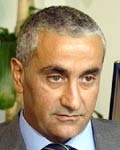
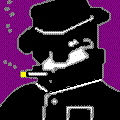



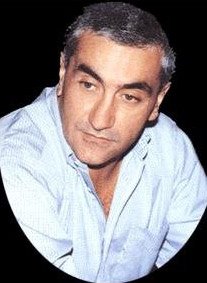

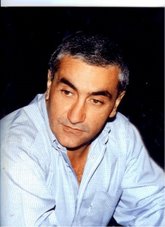
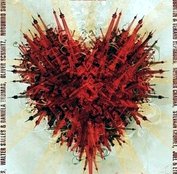
(e)SP_A0012_edited.jpg)



